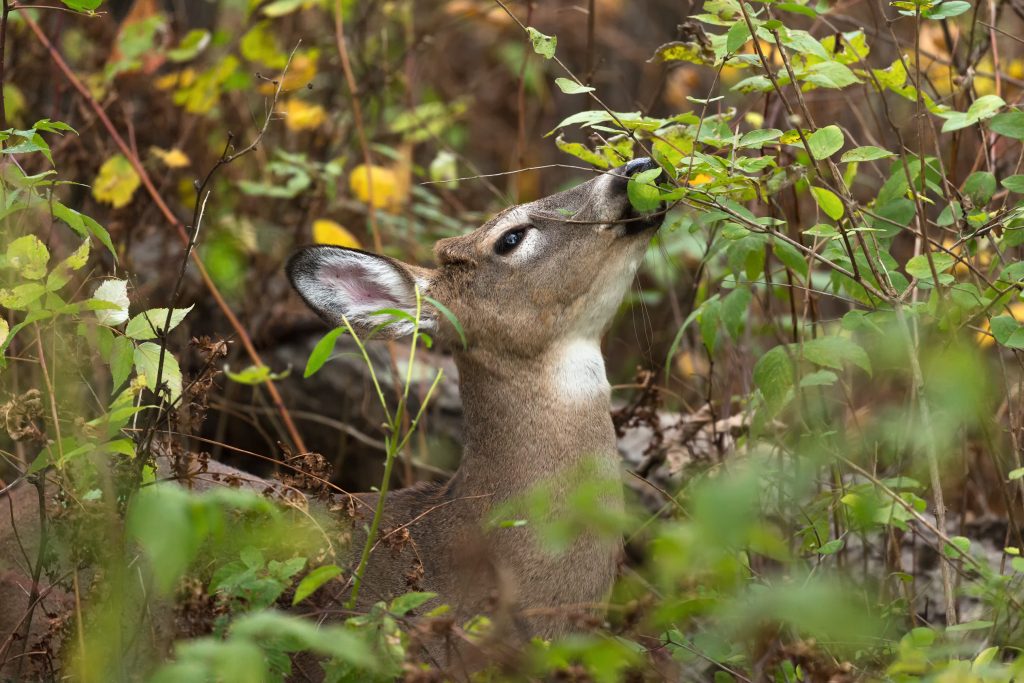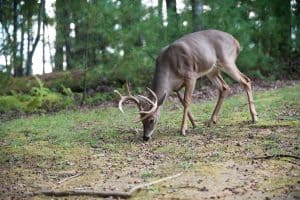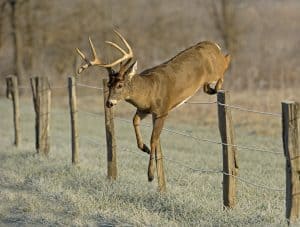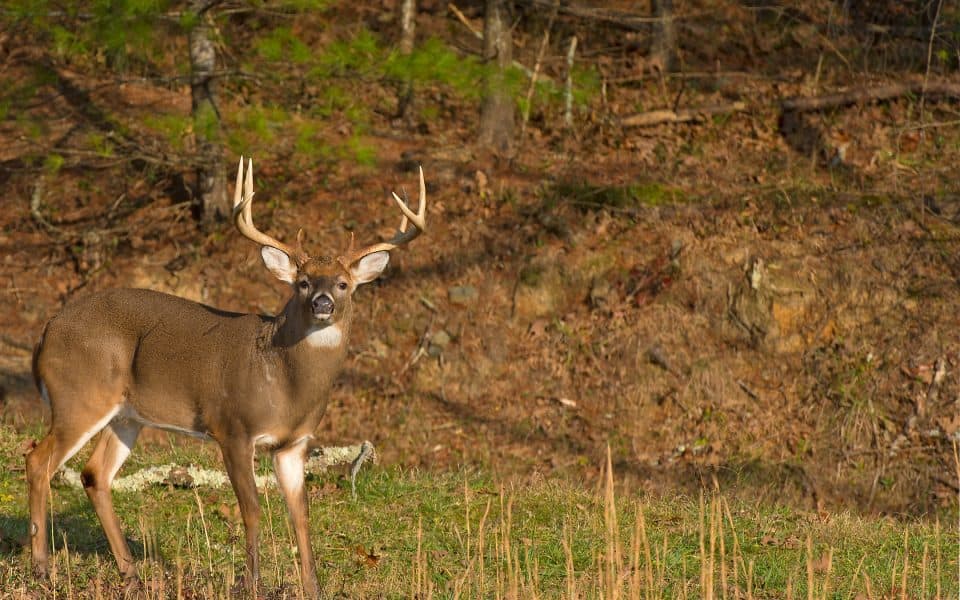Do you believe in the and dreaded “autumn lull?” Much is changing in the whitetails’ world during this phase of the fall and most hunters have their beliefs as to why this “calm before the storm” happens – some think it’s the acorns, others believe it’s the leaves falling and their cover is gone. I believe it’s nonsense. There are a number of other justifications, but it’s true, much is transforming in their habitat and to their physical condition. We simply need to learn how to anticipate the changes and counter them with sound solutions.
Plan On the Autumn Lull
Rather than being surprised when the leaves fall off of the trees, bet on it! It happens every year. Expect the size and shape of their seasonal range will be affected and will likely move within their larger home range. If you prepare for the fall’s changes rather than using them as an excuse, the period preceding the rut can be as productive as any time. However, if you are still looking in the same places you’ve seen them during August and September, it probably does seem like there’s a lull. Learn the seasonal changes of your herd and anticipate the moves.

Linda Arndt
During this time their nutritional needs change. During the summer months they crave protein rich foods like clovers, alfalfa, and annual legumes like soybeans and mung beans. Usually about the time people claim the autumn lull happens (in my neck of the woods in Minnesota, typically the middle of October) they’ll begin to crave carbohydrate rich foods like brassicas, corn and cereal grains for their energy and heat.

Tony Campbell
Locate and Hunt Acorn Producing Trees
Most hunters agree that the presence of acorns is a main reason for a change in the whitetails’ behavior. During a good year, oak trees can yield up to 3,000 pounds of acorns per acre of canopy. Acorns only have around 7 percent protein, but they have huge fat content and are very high in carbohydrates. If readily available it’s said that whitetails can consume 80 to 90 percent of their diet in acorns.
Stay on top of this food source and use it to your advantage. Dudley Phelps, self proclaimed “tree-nerd” from Mossy Oak’s Nativ Nurseries suggests to plant “mast plots” similar to planting food plots. Choose different varieties of oaks with different drop times and production patterns to produce a “tree plot” that will provide a palatable food source for as long as possible. Soft mast like apples, pears, berries, etc. can also be included. Plant or release, fertilize and take advantage of these natural food sources.
Limit Pressure
A huge factor that affects whitetail movement, possibly more than any other reason, is pressure…mainly us…humans. When cooler temperatures arrive, the bugs die off and “weekend warriors” head to the field. Let alone other hunters; now hikers, horseback riders, berry pickers – heck, everybody thinks it’s more pleasant to be outside. This can be a huge reason for the radical decrease in deer sightings in many areas.

Paul Brown
Hunting un-pressured, private ground is preferred, but even on your own private land, even if you are the only sole to step foot onto it, the pressure that YOU ALONE put on the area can make a huge difference. If you wish to “house” mature bucks on your land you MUST give them a spot where they are left alone. Sanctuaries are very important. Don’t stress your herd!
Predict Food Source Changes
Along with the acorns mentioned above, other food sources will also change just before the rut. During early season, protein is a very important component of their diet. As said, once colder temperatures arrive you’ll see a switch over to foods containing higher levels of carbohydrates. Brassicas, cereal grains or corn will replace soybeans, clovers and various other annual legumes. Deer Radish and Winter Bulbs are exceptional blends at this time. Don’t be reactive, be proactive and prepared for the switch. Keep a journal. Whitetails are creatures of habit, they’re likely to do the same thing next year.
Make Something Happen
Aside from the common sense changes we have already touched on, some choose to try and “make something happen” during the lull. The use of scent, calling and rattling, or decoys can be an effective and exciting way to fill a tag.
In October you can begin using breeding scenarios or competition set-ups. After all, the “reason for the season” to a whitetail is all about “perpetuation of the species.” Using scent to lure in mature bucks can work perfectly during this time. A little Special Golden Estrus – making it seem as if the first doe in the area has come into heat, or some Golden Buck to make it seem as if a rival buck has moved into his turf can be killer at this time…literally. Presenting the smells, sounds and sights one would naturally see during this period can change your “autumn lull” into an “fall eruption.”
Join our weekly newsletter or subscribe to GameKeepers Magazine.
Your source for information, equipment, know-how, deals and discounts to help you get the most from every hard-earned moment in the field.





